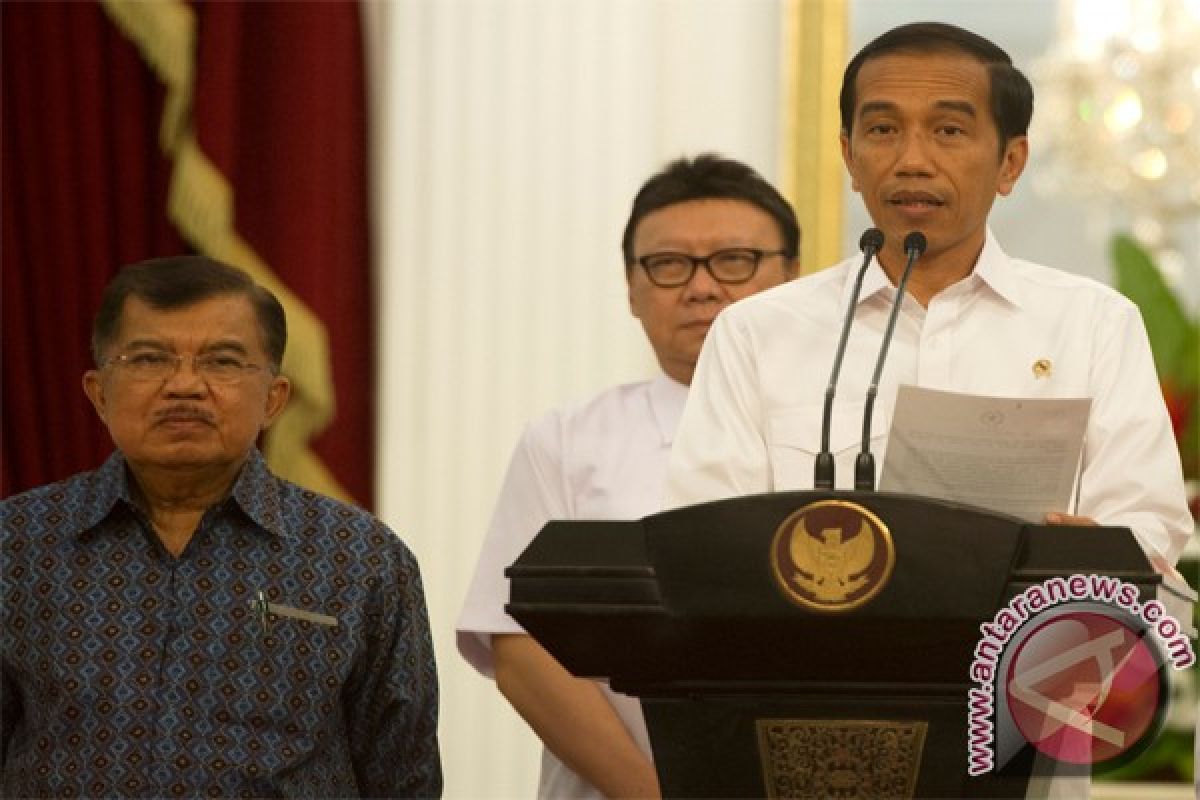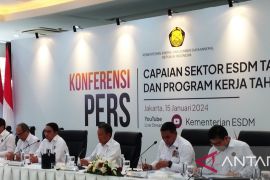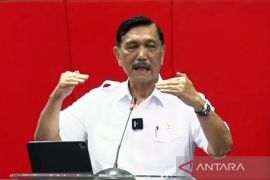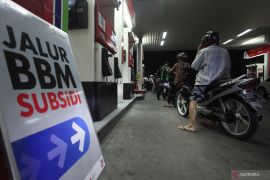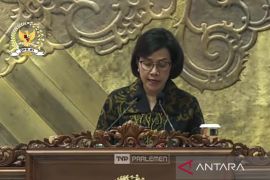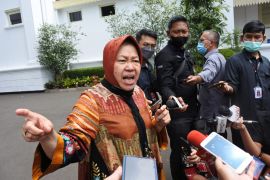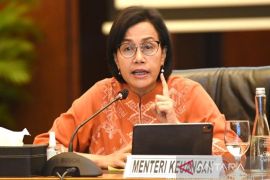These steps were taken for the progress and welfare of the people at large.
President Joko Widodo, better known as Jokowi, said here on Tuesday that if the pattern of subsidies were not altered, the burden of fuel subsidy on the state budget would reach Rp714 trillion in five years.
"Imagine that in five years, the fuel subsidy can amount to Rp714 trillion. However, we need Rp507 trillion for infrastructure development, Rp202 trillion for health, and for railway infrastructure in Sumatra, Kalimantan, Sulawesi and Papua, we need Rp360 trillion. Also, with that amount, we can build more than a thousand dams for irrigation," the president explained.
Therefore, Jokowi remarked that diverting the subsidies to those productive sectors was necessary for the welfare of all people, the poor and the rich alike.
On Monday night, the government announced fuel price hikes, raising the price of subsidized gasoline to Rp8,500 from Rp6,500 per liter and that of subsidized diesel oil to Rp7,500 from Rp5,500 per liter.
President Jokowi stated that the government needed sizable amount of funds to finance the development of infrastructure and improve education and health services.
He added that raising the subsidized fuel prices was a choice that the government needed to make to divert subsidies from consumptive to productive sectors, including those of infrastructure and education.
Deputy Secretary General of the Golkar Party Nurul Arifin said here on Tuesday that the Jokowi-Kalla government should ensure transparency while implementing their decision to divert the fuel oil subsidy.
"There must be transparency, and an explanation must be given for the fuel price hike," Arifin commented here on Tuesday in response to the governments decision to hike the subsidized fuel oil prices from Rp6.5 thousand to Rp8.5 thousand per liter.
She opined that the decision to raise the fuel oil prices would certainly lower public trust in the government as the political promise made by Jokowi during his election campaign that he would not implement such a hike was still fresh in their minds.
Arifin further noted that the governments promise to divert the fuel oil subsidy to productive sectors, such as for the development of infrastructure, should be fulfilled at the earliest.
"It must be realized as soon as possible so that the public can enjoy the benefits they are being promised by the government," she added.
Moreover, Karyono Wibowo, an observer at the Indonesian Public Institute, also remarked here on Tuesday that the government policy to raise the subsidized fuel oil prices could reduce public trust in President Jokowi.
"It is feared that public trust in Jokowi will decline because in less than a month after being inaugurated as president, he has burdened the low-income community with the subsidized fuel price hikes," Wibowo pointed out.
He stated that the government should have postponed the fuel price hikes and looked for solutions to overcome the budget deficit by optimizing the income tax sector, which has soared to hundreds of trillions of rupiahs.
He added that the government could have also plugged the budget leak that occurred in the country and optimized expenditure of state revenues through state-owned enterprises.
"Thorough audit of the oil and gas sector from upstream to downstream also needs to be done," the study team leader of the Trisakti Study Circle explained.
Wibowo explained that raising fuel prices has a big impact on the social and economic lives of people as energy is a vital commodity in their everyday lives.
"The world is dependent on energy. Therefore, it would not be an exaggeration to say that one who controls energy controls the world," he remarked.
Furthermore, a senior politician of the Indonesian Democratic Party of Struggle (PDIP), Pramono Anung, said here on Tuesday that the subsidized fuel price hikes would help to fix the state budget and fiscal deficit.
"The fuel price hike is aimed at fixing the state budget in the long run. If the policy had not been implemented by the president, the government would not have been able to realize its other programs," Anung noted here on Tuesday.
According to him, the increase in fuel prices was an unpopular policy decision and that the Jokowi-Kalla government had taken a major risk.
"If the fuel price hike is an unpopular policy, the government is willing to accept the risks involved to nourish the states fiscal domain," he affirmed.
In addition, Indonesian President Jokowi assured that members of his government were not worried about implementing an unpopular plan to reduce fuel oil subsidies.
During a gathering with the Indonesian community in Brisbane on Friday night, Jokowi remarked that the government did not worry about the policy being unpopular as long it was beneficial for the people.
The president noted that the large amount of funds that were allocated for fuel oil subsidy could be diverted to aid farmers by providing them with irrigation facilities, seeds, and fertilizers, or to help fishermen by providing them with fishing boats, machines and cold storage units. These would be more beneficial than helping those who own cars through fuel oil subsidies.
"If we give people a true and reasonable explanation, they will accept it," President Jokowi said, adding that he did not worry about whether his popularity would decline because of the policy.
He emphasized that public interest was top priority and that the budget should be right on target.
(Uu.O001/INE/KR-BSR/A014)
Reporter: Otniel Tamindael
Editor: Priyambodo RH
Copyright © ANTARA 2014
